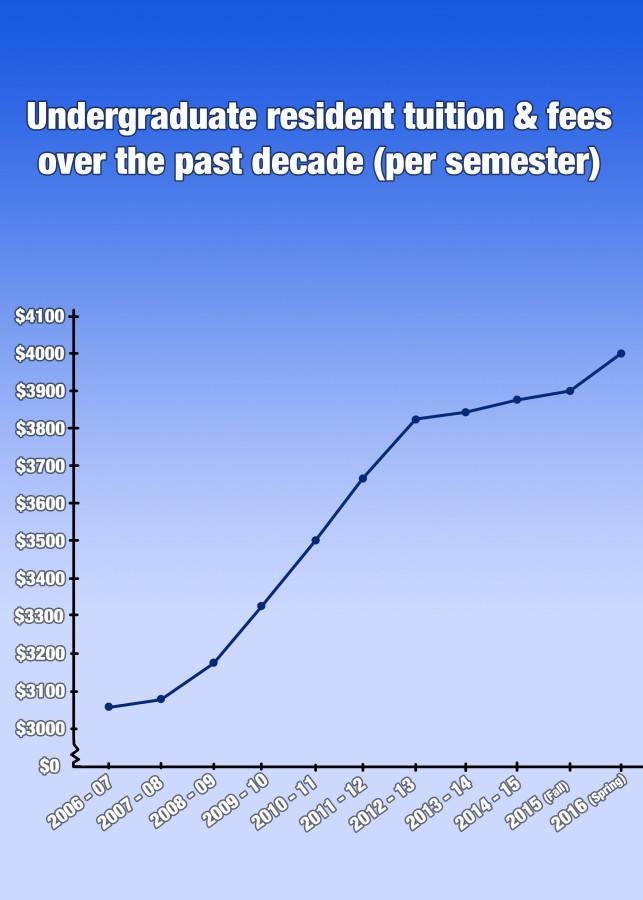President Evans approves of spring 2016 tuition increase
Sep 21, 2015
NISG President Katie Evans approves of the recent three percent hike in tuition. On September 9 the Board of Regents passed the measure for tuition at UNI and ISU increase. Tuition at UNI will be raised approximately $100 next semester. According to Evans, the money will be going to good use.
“The money will go towards maintaining the excellent programs and opportunities we have, covering salary increases, etc.,” said Evans.
With the approximate 12,000 students attending UNI, the school will earn about 1.2 million dollars extra next semester. However, Evans thinks every penny is necessary for UNI to maintain its success.
“UNI needs the revenue, as we are the university with the highest percentage of in-state students with smaller state appropriations,” Evans said.
The student government and Board of Regents discovered the state appropriations were even smaller than anticipated this year, thus the unusual mid-year tuition increase.
Many students are upset about this increment, including junior criminology major Nick Oldenburger.
“That hundred dollars could be someone’s groceries for the month or go towards other bills,” said Oldenburger. “It seems unfair to surprise students with an extra hundred dollars out of nowhere.”
However, many students are more upset about not being informed of where the money is going rather than the dollar amount itself. Some students believe the cost is being sprung on them with little explanation.
This is true for Abby Isenberg, freshman elementary education major.
“I don’t like how the school isn’t informing us where this money is going,” said Isenberg. “They’re just raising tuition without telling students what it’s going to be used for.”
After some initial dissent, the rest of the members of NISG unanimously backed Evans’ decision.
According to Evans, the university understands that increasing tuition affects students and their families, but gradual tuition increases allow both students and families to budget for the incremental increase, and it won’t burden those students down the road.
One thing UNI prides itself on is having a low student debt rate, and Evans is confident the increase in tuition won’t affect that rate at all. Although the university will continue to lobby for increased state funding, Evans argues that the gradual increase of tuition overtime has a more positive effect than freezing it and charging a more exorbitant price in the future.
The Iowa City Press-Citizen reports that The University of Iowa is the only regent university that isn’t raising tuition mid-year.
This is because the University of Iowa already pays more in tuition costs and mandatory fees than UNI, and the U of I student body president, Elizabeth Mills, voted not to increase tuition as a result. According to the Iowa City Press-Citizen, Mills told the Board of Regents that the students she spoke with almost universally requested that the tuition increase not be implemented.
“While $100 might not seem like much, for many students it can be a barrier,” Mills said.
Whether students want to pay the extra costs or not, they will all be seeing an extra $100 tacked onto their U-bills this coming winter. Although there has been some negative feedback from students, Evans maintains that the extra money will help sustain UNI’s programs and studies.














